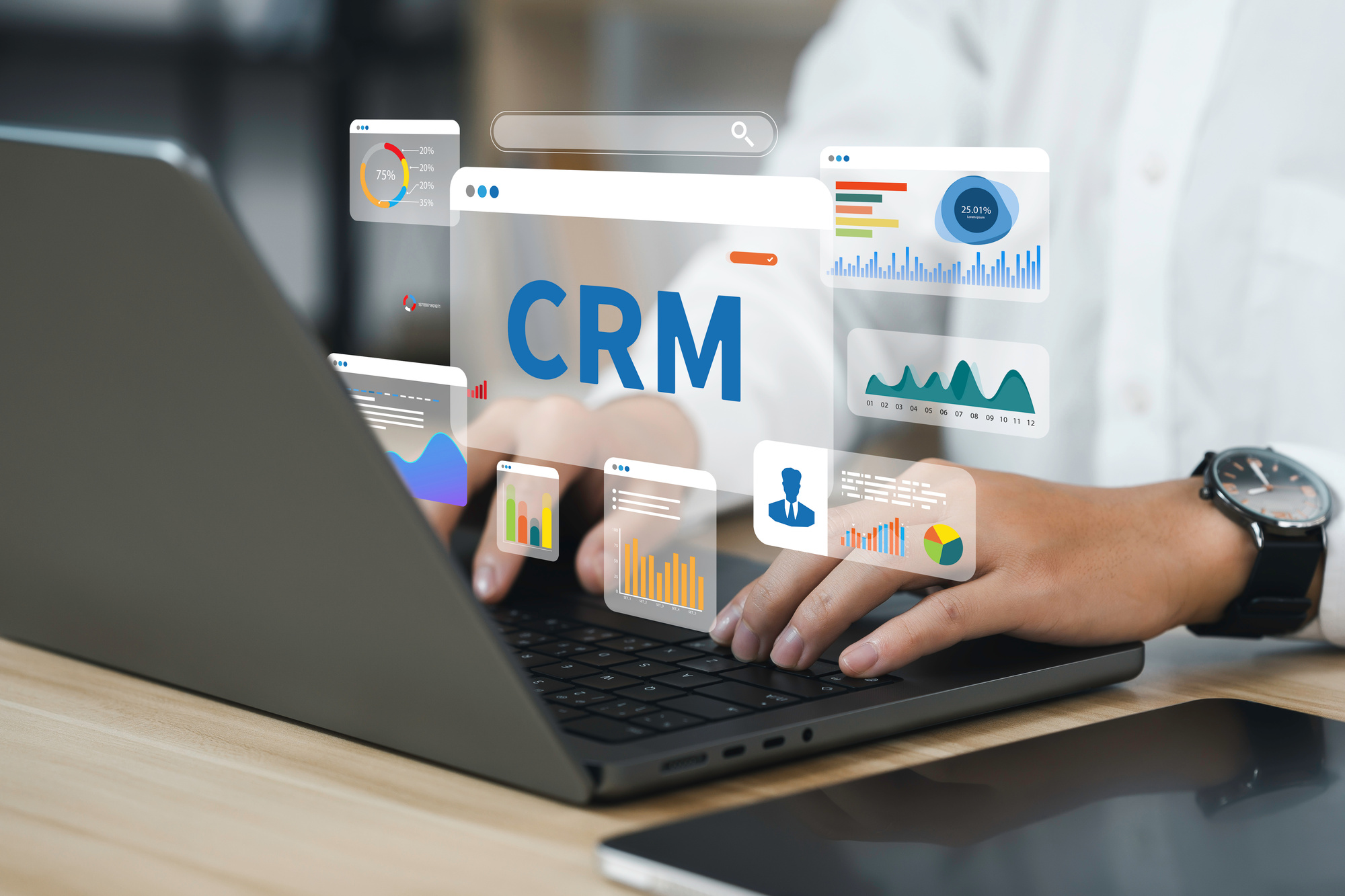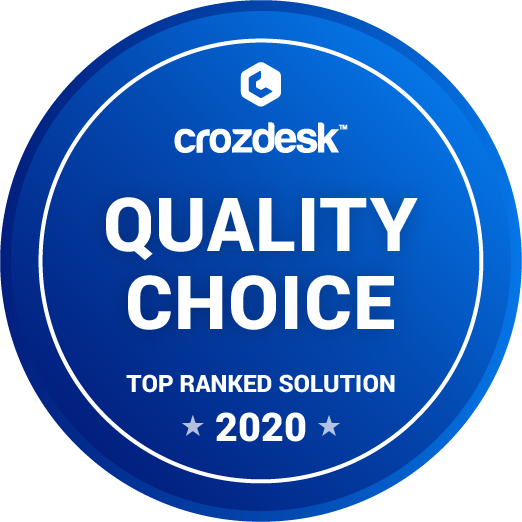
When used strategically, a customer relationship management (CRM) platform is a powerful tool that can transform your organization and workflow. By generating and processing valuable client and market data, CRM enables enterprises to create effective strategies that boost their brand, customer loyalty, and revenues, regardless of size and niche.
Multiple industries can benefit from using CRM software, and the following sectors demonstrate how powerful this platform can be in growing your business.
1. Financial Services Industry
Financial services companies use CRM to enhance customer service and sales by understanding customer behavior. The software provides insights into each customer’s activity, including the products they purchase, how often they interact with the company, their professional and personal connections, and more.
This information helps financial service providers tailor their offerings to be more relevant to the customer’s needs. With the available data, CRM makes upselling and cross-selling products easier. The push for modernization has led even federal financial institutions to adopt CRM tools with the help of CRM consulting companies.
In addition to streamlining marketing and sales processes, CRM improves communication efficiency. Since the tool is accessible to team members, employees across departments can view what’s happening with various accounts at any time. For instance, if an agent is having trouble closing out a loan application while another client is looking for new insurance, the team veteran can assist the former, while a newbie can handle the latter.
CRM helps companies like Good Vibe Squad boost their marketing strategies, ensure compliance with regulatory rules, and manage referrals effectively. This is also true in other niches like the retail sector.
2. Retail Industry
The retail industry involves selling goods and services, and the market can become crowded. One way to stay ahead of the curve is to build brand awareness and enhance your business reputation, especially on social media. This is crucial if your target market primarily consists of millennials and the Gen Z population.
As a versatile business tool, CRM helps retail companies provide users with a highly personalized shopping experience. CRM systems can identify an individual’s needs and preferences, allowing businesses to fine-tune their offers.
With CRM, retailers can collect valuable data to improve customer acquisition, loyalty programs, and sales efforts. It also enhances client response times across all customer touchpoints, integrating chatbots that are available 24/7.
3. Healthcare Industry
The healthcare industry is one of the largest sectors, yet staff shortages remain an issue. If your business belongs to this sector, you can use CRM to enhance your staff’s quality of care and efficiency, while integrating top-rated EMR systems like optimantra emr can streamline patient data management and improve communication.
Healthcare staff must provide patients with the best possible treatment. However, this can be challenging when many moving parts are involved. In addition to doctors and nurses, support staff such as receptionists and billing specialists must access patient records to do their jobs well. Swift access to accurate patient data is crucial in ensuring client satisfaction; this business tool can assist you with that and more.
With CRM software, your team can stay organized and respond promptly to queries, automate appointment reminders and health checks while keeping personal data confidential, which might not be as strict a requirement for other sectors like the car sales industry.
4. Car Dealerships
Unlike the automotive manufacturing sector, car dealerships have been slower to adopt business technologies. However, with a CRM tool, they can undoubtedly improve their workflow efficiency, particularly in marketing, sales, and service delivery.
Auto dealerships can use CRM to track their customers and marketing campaigns. With it, executives can determine which advertising methods work and why. It also helps ascertain how people respond to an ad and what they say about it on social media.

As such, CRM helps fine-tune your marketing strategies, whether your goals are to expand audience reach or launch a more targeted campaign to attract high-quality leads. Customer data reveals which platforms they use and when, ensuring that paid ads appear on the right platform at the right time.
As with other industries, auto dealers can use CRM to provide stellar post-sales services, just as lawyers do with their CRM tools.
5. Law Firms
For years, many law firms have relied on traditional advertising to promote their practices. That has changed as organizations realize the need to embrace digital marketing to attract more leads. Consequently, law firms maintain websites, integrate forms and chatbots, and employ other technologies to get closer to their audience and generate potential clients.
CRM can enhance legal professionals’ work processes by automating manual and repetitive client-related tasks, such as data entry. A centralized customer data management tool enables lawyers to quickly generate, update, and access information, allowing them to focus on their core tasks instead of wasting time searching for information, like a client’s case history and applicable statutes.
A CRM tool for law firms also automates client communication by sending appointment and court schedule reminders, ensuring they don’t miss essential meetings.
Additionally, it helps generate relevant and impactful marketing data that firms can use to grow their business, including identifying the most common cases requiring legal advice and assistance. Furthermore, lawyers can discover the most popular social media posts and leverage them to insert their law firm’s name, increasing brand awareness and building authority.
6. Manufacturing Industry
Like the healthcare industry, the manufacturing sector also consists of numerous systems and processes that must work seamlessly. CRM’s comprehensive data enables an integrated marketing, sales, and client contact management approach. These include improving product quality, customer service and response, supply chain management, and order management.
The tool allows manufacturers to better understand their market and audience, including their preferences and pain points. Using this information enables these enterprises to create revolutionary products that add value to their customers’ lives.
Integrating CRM with an ERP platform provides manufacturers with supply chain and inventory insights. This allows them to time their orders and production schedules to satisfy market demands. Post-production, manufacturers can use customized CRM to enhance order management systems by gathering information about their customers’ wish lists, product preferences, and purchase history.
7. Automotive Repair Industry
Auto repair shops are also seeing major improvements by adopting CRM solution tailored to their shop’s needs. For these shops, CRM isn’t just about sales, it’s a vital tool for building lasting customer relationships, automating marketing campaigns, and improving retention in a highly competitive industry.
Repair businesses can schedule appointments, send automated follow-ups for deferred services, and launch targeted campaigns based on customer history, vehicle type, or last visit date. This not only boosts repeat business but also helps prevent no-shows or double-booked appointments which is a common issue in busy shops.
Shop owners can also track customer interactions, link marketing campaigns directly to repair orders and view real-time insights on campaign performance so it’s easier for them to gauge what’s working or not.
Conclusion
With CRM software, businesses can keep track of customer information, send targeted messages based on customer behavior and preferences, and automate processes like scheduling appointments or sending reminders.
As a customizable business tool, organizations can use CRM tools to transform their processes in various ways, improving multiple business workflows that ultimately increase revenues.
Raghav is a talented content writer with a passion to create informative and interesting articles. With a degree in English Literature, Raghav possesses an inquisitive mind and a thirst for learning. Raghav is a fact enthusiast who loves to unearth fascinating facts from a wide range of subjects. He firmly believes that learning is a lifelong journey and he is constantly seeking opportunities to increase his knowledge and discover new facts. So make sure to check out Raghav’s work for a wonderful reading.




